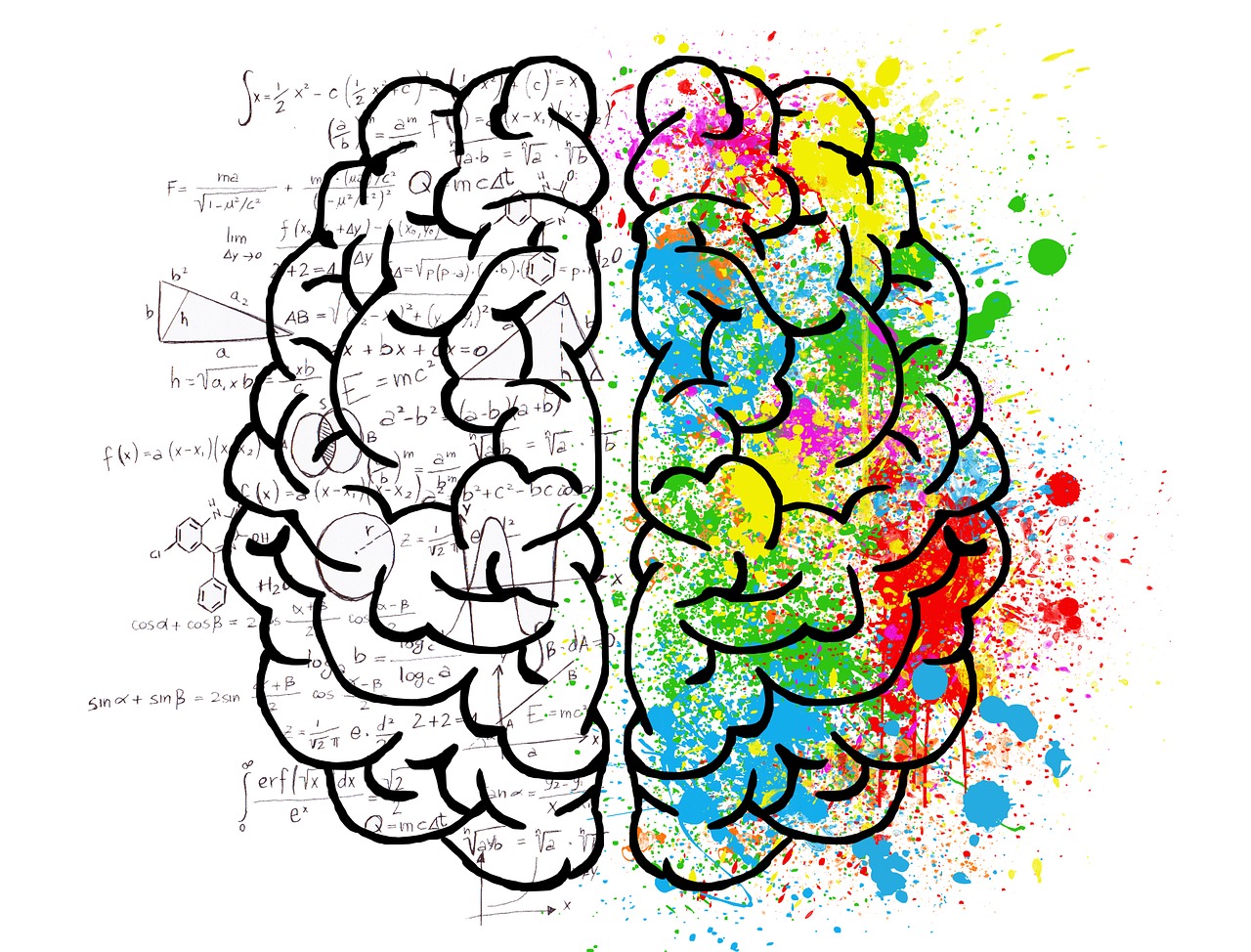A SIMPLE GUIDE TO OVERCOME DISTRACTIONS
Easy ways to get back your focus
What is a distraction at all?
Before we dive into the deep-rooted causes of distraction, let’s start with defining what distraction means.

A distraction can be an internal or external force that takes over the control of your focus just for the moment and shifts it to somewhere else. In the end, everything that is able to interrupt your deliberate will to stick to a subject of your choice, is a distraction. These are the variables you have control over: Your thoughts and your environment.
YOUR THOUGHTS
In the 21. century we are literally coerced to tackle a massive amount of thoughts every day, compared to 30 years ago. Why is that? Because never before, there have been so many influences in our daily lives, which crave for our attention. It can be quite a hurdle to find a distraction-free zone. The truly sophisticated entertainment and advertising doesn’t make it better for us! The number of thoughts – you guessed it doesn’t decrease; it increases heavily. The longer you live, the higher the chance that you become the opposite of a doer, a slow and overloaded computer, IF you don’t take a conscious commitment to encounter this otherwise inevitable predicament.
Creating mindfulness
In 1975 the Belgian cloth merchant Antoni van Leeuwenhoek (yes, a merchant!) made groundbreaking discoveries. With his very own made microscopes he enabled humankind the first time a view to microorganisms: the bacteria. Never before it was possible to zoom in to such small forms of life like bacteria. With his tool, the microscope it was now possible to analyze, protocol and research on the behavior of it. To get back to the connection with mindfulness: You already got the tools in your hand to analyze, protocol and research on your thoughts. Go back 200 years ago and human beings were not even close to, what the average individual is able to reflect today. Due to the tremendous increase of intelligence, you are able to describe and analyze almost any feeling in your brain. The better you get in doing that, the more mindfulness you create and the better you will handle distractions in the future. Anyway, there is no need to make a science out of it (although it can be fun!), but your ability to reflect deep enough where your thoughts come from is critical in decluttering your head and managing distraction.
The monkey mind: Distraction prevention
Buddhist monks are masters in focusing. Not because they are born without their clutter in mind, but because they have learned, that the thousands of thoughts which intrude us like parasites everyday are our default state of mind. Right, our default state is not tranquility and order, but turmoil and chaos. And now you are allowed to put down the weight of your shoulders. You are completely OK being occupied by them. I promise, if you made the commitment mentioned above, you are ready for the new, serene and ordered mind. In order to reduce the frequency of thoughts shooting through your brain there is some work to do.

Three easy ways for minimizing distracting thoughts
- Writing down your thoughts
- Minimizing exposure to information
- Meditation
Writing down your thoughts
Imagine you are carrying around a 50 kg bag every day with a lot of stuff you have found along your way. Not only have you forgotten that you wear this bag every day, but also what’s inside it is a big mystery to you. The only noticeable thing is that you are tired in the morning already, even when you have gotten enough sleep. Guess what? Everybody is carrying their own bag and the ones that are able to manage their load professionally are the ones many steps ahead. It’s time to become lightweight! Writing down your thoughts is like a superpower which enables you to not only lay down your bag, but also filter and throw out what you don’t need anymore. There are various styles of writing available and one of them will fit you for sure! For now, I recommend you to write down the things that bring you joy and those which haunt you and reflect afterwards how you feel about it! If done regularly you will notice a heavy decline in distracting thoughts quickly.
Minimizing exposure to information
Meditation
Do you know what happens with our sun, when its mass surpasses a certain threshold? When it reaches a critical volume, it’s going to collapse and consequently turns into a very messy black hole. That’s something our sun may want to avoid. You most likely won’t turn into a black hole if you are surpassing a critical mass of information you have to deal with, but it’s going to become messy anyway. The ideal amount of information a human can handle, is as less as possible. The goal is to focus on the most important information you need just right in that moment, and you will reach that aim by exposing yourself only to the most essential information in your everyday life. Most essential are things that are really beneficial to you. Yes, you are allowed to be picky what kind information you consume! Yes you are allowed to be picky from which channels the information comes from! Mostly only super effective managers or business owners have realized, that not everything and everybody who wants our attention is allowed to get it. Analyze, write down, eliminate!
Now this is the point which probably has the biggest leverage if done consequently. Meditation not only allows you to increase your power to focus tremendously, but it also decreases the amount of your thoughts in your head automatically. All of this with just 15 minutes of daily meditation. Without even having done the techniques mentioned above. It will not make you 100% distraction proof, but if you are willing to make meditation to your daily routine, it will mitigate distracting thoughts to a minimum. I recommend you start with guided meditation to make it as enjoyable as possible in the beginning. You may also join or start with a friend to make it even more rewarding.
YOUR ENVIRONMENT
Highly focused people don’t have a superhumanly ability to ignore all the distractions around them, but they are masters in putting themselves in a distraction-proof environment which facilitates focus.
What causes distraction in your environment?
- Ambient noise (passengers, crew, equipment)
- Noisy equipment
- Active conversations with other people
- Information overload from displays
- Cell phone use (talking, texting, gaming, social media use)
- Physiological discomfort due to temperature, body positioning
- Fatigue
- Lack of maintenance on equipment that is distracting (noisy doors or chairs)
- Looking for irrelevant objects in the environment (birds, animals)
- Automobiles
- Inability to focus due to personal stress
Remember: distraction-control is your sole responsibility. There is no time to pity yourself for the predicament you are in. It’s in your very own interest to engineer your environment, so that it supports your laser sharp ability to concentrate and getting things done.
Managing distractions while studying
What interrupts our attention while studying? Here are 3 common distractors and what you can do about it:
Too much noise in your apartment
- libraries
- rooftops
- basements
- places in nature (there are fancy portable outdoor tables available)
- study cafes
Electronic screens
All of us have tried to study without smartphone and you know best, that leaving your smartphone in another room can already have a big impact on your focus. Some of you have useful apps on your phone for organizational reasons, but let’s be honest : mostly these apps have a desktop mode, which enables you to escape from all the other distracting features of your phone. WhatsApp web is by the way not a useful app for desktop mode 😉 Withstand the temptation!
Too much clutter on your table
Free yourself from the attention craving sweets, free yourself from holiday pictures and pictures of your friends. Yes, these things are important to us, but not while you’d like to get things done. Your table and chair are your holy shrine where you established high productivity and the fulfillment of your dreams. Everything that doesn’t support you with that process is allowed to admire you from another place in your room. And if you need a quick inspiration – simply turn around.
Managing distractions while working
Many business gurus before me have mentioned dozens of ways to reduce distraction to a minimum. I will not invent new ways for now, but here are your 3 most critical distraction eliminators at work:
#1 Emails and other kinds of social media
Studies have shown that you are most productive in the state of “flow”. This is almost like a trance like feeling where you are super creative, super sharp in thinking and super quick in execution. It takes about 10 to 15 minutes to get into the flow. Every time where you allow yourself to interrupt the magic string of flow (yes, it’s not a rope, it’s a string), it takes up to 15 minutes to get back. Adding up with how often we check our emails and social media, it lets us barely experience this satisfying state of mind. Do yourself a favor and schedule specific times where you check all your media. Many CEO’s claim, that checking mails twice a day is absolutely enough for them to get everything answered and done. I suggest 9 am and 4 pm. In some specific professions you are more or less dependent from emails. I recommend you to open up a personal cloud for documents people need to send you, so you don’t have to check WhatsApp or emails all the time. It may take a while to train them to send you things to a cloud instead of email and WhatsApp, but usually these are the same folks all the time. You can even write your general cloud’s link on your WhatsApp profile or in your email signature.
#2 The distraction notepad
Everything that pops into your mind while you are working and is not essential for the current process usually interrupts your focus. Just think about your grocery list, the bill you didn’t pay yet or your tax return. The solution for this: a distraction notepad: Write two headlines on a piece of paper.
- Things I want to get done until …
- Distractions – things I need to get done after my current important task
Every time when a novel important thought strucks your mind, you don’t try to tackle it immediately, but you write it down on your distraction notepad and resolve it after your current task. At the same time, you reinforce what the actual main goal for the next 30 minutes is by looking at the first column.
#3 Colleagues and Family
Yes, socializing is critical and fun, we all know that, but since you have high aspirations, give yourself the permission to get things done. This can look like a closed door, ear plugs or a simple home office agreement with your boss. Some employers are sensitive to home office so if there is demand, I will write an extra post how you strategically sell your boss a home office agreement.
If you can't ignore a distraction, what should you do?
Avoid – very often a distraction is predictable. Avoid getting into the same situation at all in the future.
Alter – change the task what you have to do, to something that doesn’t require a high focus right now.
Accept – accept the distraction if it is just temporary and encounter with noise control or patience until it’s over.
Adapt – adapt to the new situation and leave the room, the apartment or try to eliminate the distraction with a conversation (yes, it’s hard to have a conversation with the construction down the street).
